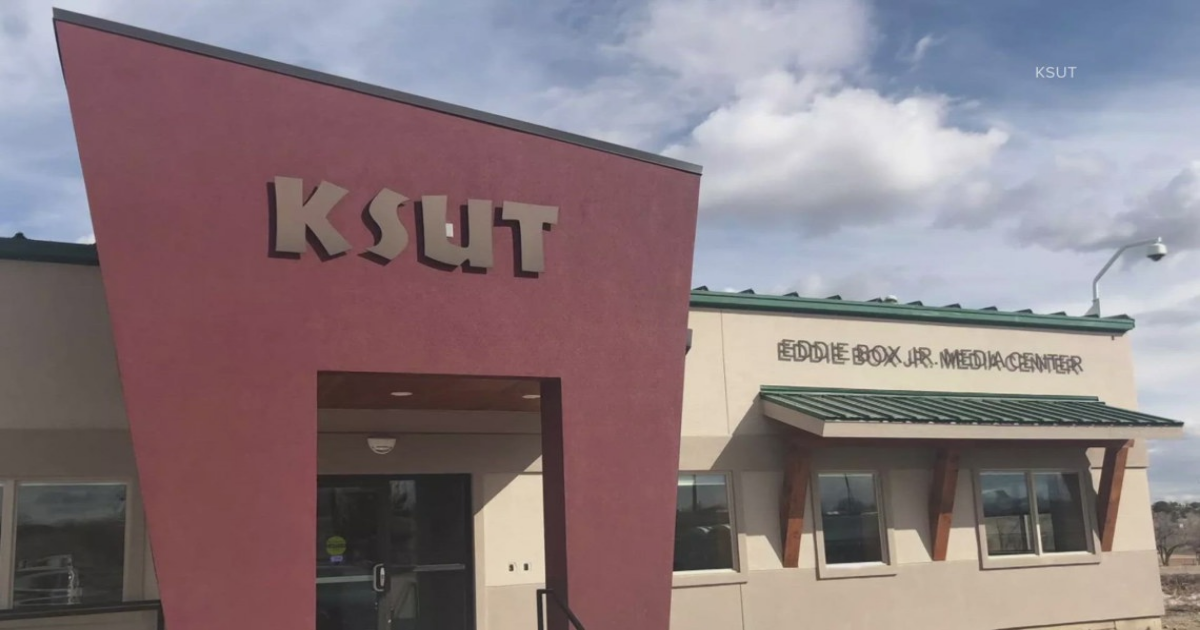IGNACIO, Colo. — The Corporation for Public Broadcasting announced Friday it will shut down by the end of the year after Congress cut off $1.1 billion in federal funding for public broadcasting. The move leaves a rural Colorado radio station unable to upgrade critical emergency alert equipment.
KSUT public radio, located in Ignacio, Colorado, in the Four Corners region, stands to lose a $537,000 federal grant intended to upgrade aging tower equipment essential for emergency alerts in areas prone to wildfires and floods. The station serves five counties in southwest Colorado and northwest New Mexico, many with unreliable cell and internet service.
“Our equipment at all of our tower sites is at least 20 to 25 years old,” KSUT executive director Tami Graham said. “It’s aging equipment, it’s breaking down constantly. There’s a reason we got this $537,000 grant. Because we demonstrated how aging our equipment is at these critical tower sites, critical for emergency alerting to our very rural region, in times like wildfires or floods or whatnot.”
The funding cut stems from a Trump-backed budget bill passed by Congress last month. President Donald Trump has argued that NPR and PBS are biased news sources that should not receive federal funding.
Earlier this year, KSUT joined two other Colorado public media stations and NPR in a lawsuit against the Trump administration attempting to block the federal funding cuts and restrictions. The legal challenge remains ongoing.
CPB announced it will eliminate the majority of its staff when funding runs out in September, with full closure scheduled for January. The organization had been designated to manage a set of next-generation warning system grants on behalf of FEMA, using funds allocated from the FY22 infrastructure bill over three years ago. It’s a grant KSUT says it desperately needed.
Graham said the grant had already been frozen and unfrozen three times due to uncertainty, preventing the station from spending any money because it is a reimbursement grant.
“We were told by CPB last week that if we spent any of that money, it was at our own risk, only because they continue to lose access to the funds from FEMA,” Graham said.
Despite the risks, Graham says KSUT spent $30,000 on an essential transmitter today, the same day CPB announced its shutdown.
“The equipment we have is being held together basically with duct tape and glue,” Graham said.
Graham envisions a scenario soon where they are unable to send alerts to residents who need them.
“People who listen on radios in rural areas are absolutely relying on those radios,” she said. “As many people know, when the power goes down, when they have no internet signal, it’s the way they get their information about emergencies, and that’s critical. That’s why it’s a next-generation warning system grant.”
The impact extends beyond equipment upgrades. Graham says federal funds comprised 20% of KSUT’s budget and supported staffing for local news reporting and infrastructure maintenance.
“This isn’t an issue about NPR and PBS, this is hitting local and rural communities the hardest,” Graham emphasized.
Rural communities in particular depend on radio for emergency information.
“A lot of the tribal communities we serve don’t have reliable cell service or internet service, so they’re listening to the radio for those emergency alerts,” Graham explained. “That’s what’s at risk, people not knowing what’s happening at the height of a natural disaster or emergency.”
The station has seen increased local donations, she says, with supporters raising monthly contributions from $10 to $30. However, Graham argues that public media provides a public service warranting federal support. Conservatives have argued that the stations can and should be funded by donations, and not with federal funding.
“The overall bigger picture is really sad, because this is critical,” Graham said. “This isn’t a partisan issue, emergency alerting. Come on. It’s scary because it’s definitely putting people’s lives at risk.”
CPB says it is focused on helping small, local stations navigate the sudden funding loss, as federal funds make up a relatively small portion of NPR and PBS’s national programming but represent crucial support for local affiliates like KSUT.
